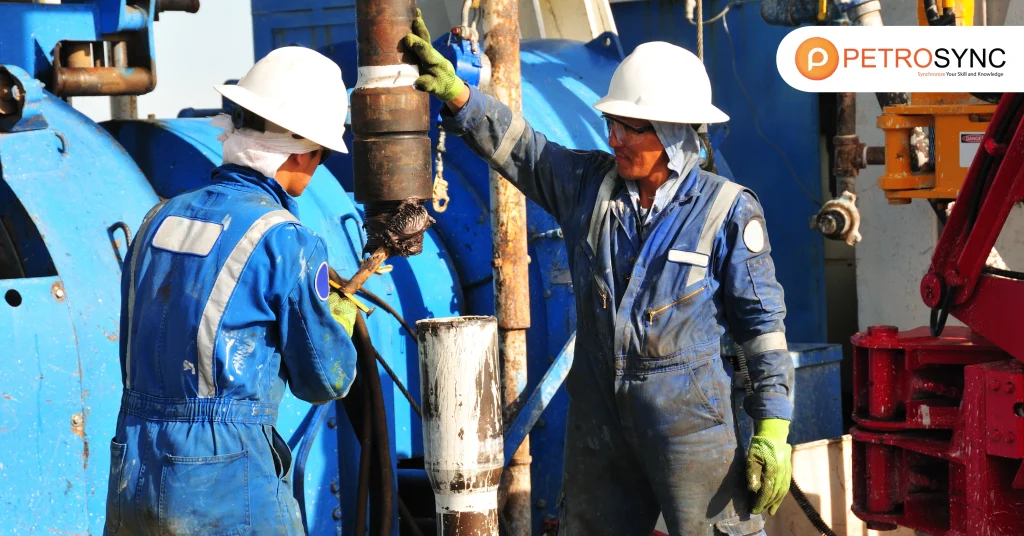In the ever-evolving oil and fuel industry, the function of a drilling engineer is no longer solely essential – it’s foundational to the success of any drilling operation. From technical sketch to on – web site decision-making, drilling engineers aren’t simply the technical minds at the back of the curtain; they’re strategic thinkers whose know-how can flip effectivity into profitability.
For many senior professionals, managers, and executives, grasping the cost of drilling engineering is no longer non-compulsory – it’s a direct driver of ROI, safety, and operational excellence. So, who precisely is a drilling engineer, and how do they have an impact on the success of a task from under the surface?
Table of Contents
ToggleWhat is a Drilling Engineer?

A drilling engineer is a technical professional in charge of designing and managing the drilling method for oil and gas wells, focusing on efficiency, safety, and regulatory compliance. But in reality, the job goes a lengthy way than previous textbook definitions.
I as soon as I heard a story from a professional drilling engineer in Kalimantan who had to redecorate a complete nicely diagram inside 24 hours due to surprising formation stress shifts. With quick collaboration and calm leadership, his team avoided millions in potential losses. That’s the kind of real-world impact drilling engineers bring.
Key responsibilities include:
- Developing comprehensive drilling programs
- Monitoring real-time data for critical decision-making
- Managing technical and operational risks
- Coordinating across teams – geologists, reservoir engineers, rig crews, and HSE officers
These professionals aren’t just behind computer screens – they’re often on rigs, dealing with heat, time pressure, and unpredictable conditions with a clear mind and steady leadership.
Why is Drilling Engineering Important?
Why does drilling engineering matter so much? In short – because even small mistakes can cost millions of dollars. According to information from the Society of Petroleum Engineers (SPE), leveraging superior drilling analytics and engineering has elevated manufacturing output by way of 20–25% in complicated area tasks (SPE Journal).
That’s now not simply a statistic – it’s the line between a profitable mission and one that stalls.
Beyond economics, drilling engineering also directly impacts:
- Safety and risk management
- Environmental and regulatory compliance
- Time to first oil and operational efficiency
In the age of ESG (Environmental, Social, and Governance), drilling engineers are moreover expected to apprehend sustainability strategies, no longer honestly mechanical design. This evolving position makes them vital gamers in the electricity transition.
How Do I Become a Drilling Engineer?
Some believe becoming a drilling engineer just requires a technical degree and hard work. In reality, it’s a blend of formal education, certifications, field experience, and soft skills.
1. Technical Education
Most drilling engineers keep levels in petroleum engineering, mechanical engineering, geology, or civil engineering. Many also pursue postgraduate research like an MSc or MBA for management development.
2. Certifications & Training
Licenses such as IWCF (International Well Control Forum) and IADC (International Association of Drilling Contractors) are frequently mandatory. Skills in software programs like Drillbench or Landmark are rather valuable.
3. Field Experience
There’s no replacement for being on the rig – whether or not offshore or onshore. Learning how to reply to a caught pipe or a kick in actual time builds self assurance and expertise.
4. Soft Skills
Modern drilling engineers have to be exquisite communicators, hassle solvers, and group collaborators. Project management and leadership skills are increasingly in demand, especially in multidisciplinary teams.
What is the Difference Between Drill and Drilling?
These phrases frequently get confused, however there’s a key difference:
- Drill (noun or verb): the device or the motion of drilling
Example: “The crew inspected the drill before the operation.”
- Drilling (noun): the complete procedure of drilling a well
Example: “Drilling of the offshore well will take approximately 35 days.”
In enterprise contexts, “drilling” is used more frequently due to the fact it refers to the full operation – from planning to execution to evaluation.
Boost Your Drilling Expertise with PetroSync Training – Join Today
In today’s fast-paced oil and fuel industry, retaining your drilling abilities sharp is necessary to meet operational challenges and pressure challenge success. PetroSync presents tailor-made education packages that mix sensible information with real-world experience, designed especially for gurus who choose to remain beforehand and supply regular results.
By turning into a member of PetroSync’s courses, you’ll now no longer completely deepen your technical perception then again moreover collect insights that help beautify safety, efficiency, and hazard management. Investing in this training is a smart go to empower yourself and your team, making certain you’re well-prepared for the evolving wishes of the industry.

Results-oriented and thorough SEO specialist with extensive experience in conducting keyword research, developing and implementing digital website promotion strategies and plans, managing campaigns to develop company websites in the digital world, excellent knowledge of marketing techniques and principles, and attentive strong attention to detail.









